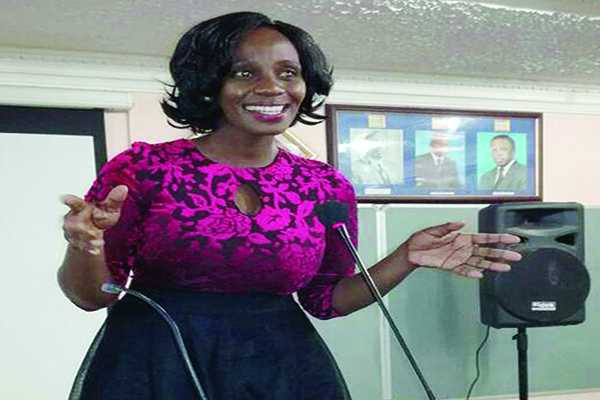Should women preach?
The specific question on the table is this: Does 1 Timothy 2:12 leave open the possibility that women are permitted to preach in the weekly gathering of a local church as an extension of the male elders of the church or as an expression under their governing authority?
The Word of God proclaims, “A woman should learn in quietness and full submission. I do not permit a woman to teach or to have authority over a man; she must be silent.”
American preacher John Piper says no and another popular preacher Andrew Wilson says yes. Piper argues that women should not preach in the local church, even under the authority of the elders, nor should they regularly teach Sunday Schools to a mixed audience.
Wilson gives three arguments to support the notion that women may preach under the authority and permission of the elders. First, he argues that not all preaching is teaching. There are other kinds of speaking in the New Testament besides teaching, such as words of exhortation, prophecy, or evangelistic preaching. Nothing forbids women from doing this kind of speaking, says Wilson. Secondly, teaching likely has a specific referent focusing on “the preservation and transmission of the authentic apostolic witness to Jesus, in the era before the New Testament was written down.” Third, Wilson says that there are two different kinds of teaching. He points to passages like 1 Corinthians 14:26 and Colossians 3:16 where everyone in the church is encouraged to teach and instruct one another, and thus women would be included in this admonition.
According to local Pastor Miriam Mazibuko, God created men and women for his purpose. She registered a church, Divine Works Ministries, seven years ago after several confirmations from other church leaders that God has called her. “From a young age, I was told God wanted to use me for his kingdom. That I was going to lead a church,” she says, adding that the church now has close to 200 people and three branches in the country.
Her take is that God anoints His people without looking at whether they are male or female. Pastor Mazibuko says that when she started her ministry, there was resentment from both men and women. “Men were intimidated and felt I wanted to take their place. Some women on the other hand, were difficult to deal with. They could not take instructions from me without murmuring,” she adds, “If a man is so intimidated by a woman in a role of leadership, the man has a psychological problem that needs to be healed and cured. He needs counseling and he needs prayer. We can’t control women simply to cater to the insecurities of men who can’t handle this.” Mazibuko lost her husband who was an elder in the church three years ago.
For Prophetess Masego Lesitaokana of Royal Eagles Church, she learnt about her calling in 2011. She says prior to that, she was serving under other pastors who helped raised her in the Lord. After establishing a church, she says that she faced rejection as a woman.
“What matters is me living the purpose of God for my life by serving Him and His people,” she says. The other problem, she says, is people who question her for doing ministry work when she is single. Pastor Monametsi Morolong of Seventh Day Adventist says women should not preach but learn in silence. He says that failure to obey what the Bible says is a sin and that women who go ahead and preach are rebelling against God.
“Twisting a straight-forward scripture like this one will lead many women to hell. They should learn in silence and ask their husbands at home,” he says, explaining that God is not about human rights. For his part, Apostle Buyani Mutamare says given the New Testament, women have the same privileges and opportunities as men. Relegating women to second-class citizenship, he states, was abolished when Jesus died on the cross. “As it says in Galatians 3:28, “In Christ now there is neither bond nor free, Scythian nor Barbarian, male nor female; all are one in Christ Jesus.” He informs that as far as women being in the pulpit, in the Book of Acts, Philip had three daughters who were preachers.
“The Apostle Paul in the Book of Romans, the last chapter, the seventh verse, alludes to two people, Andronicus and Junia. Junia is a woman. And then, he refers to them as “fellow apostles,” which in the life of the early church was the highest position attainable in leadership and in preaching,” he says, also citing the Biblical Deborah as an example of female preachers.
For Bishop Mark Motsomi, when the Holy Spirit falls upon the church on the day of Pentecost, Peter says, “This is what was spoken of by the prophet Joel when he said, ‘The day will come when the Holy Spirit comes upon His people, God’s people, and young men”--and then it says--“and young women shall prophesy.”
Bishop Motsomi says that there is a gift of the Holy Spirit that is given to both men and women in the New Testament. Throughout the centuries, Christian theologians have reflected on this issue, and the preponderance of them has concluded that the pastoral role is exclusively assigned to men.
This has been the position of the Southern Baptist Convention since its earliest days, although a few Southern Baptist churches have disagreed and installed women pastors. Meanwhile, Catherine Kuhlman, Paula White, Joyce Meyer and Priscilla Shirer are among the internationally recognised female preachers.






